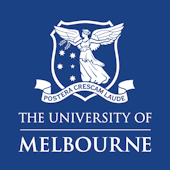Trichur Vidyasagar (called Sagar) is a neuroscientist, with a special interest in vision. He is a professor in the Department of Optometry & Vision Sciences at the University of Melbourne and also an Honorary Professorial Fellow at the Florey Institute of Neuroscience and Mental Health.
Sagar first qualified as a medical doctor from the University of Madras. Having already been involved in research into vision and neuroscience during his undergraduate years, he proceeded to do a PhD at the University of Manchester, exploring neuroplasticity in the developing sensory system. He then moved to the Department of Neurobiology at the Max-Planck Institute for Biophysical Chemistry, Goettingen. During the 10 years at MPI, he studied the basic neural circuitry underlying visual perception. This work, which has continued when he moved to Australia, first to The Australian National University (John Curtin School of Medical Research and School of Psychology) and then to The University of Melbourne, has led to a new theory of how basic attributes of a visual scene such as lines, colours and movement are coded by the brain. This understanding of sensory information processing could help not only in being able to explain many perceptual disturbances but also the development of neural prostheses for the blind.
One of Sagar’s other research areas is the neural basis of visual attention and memory. This work is undertaken in both human subjects at the cognitive level as well as in trained macaques at the cellular level, thus seeking to link our understanding from the cellular to cognitive stages. The work of his team has also helped to elucidate the neural mechanisms that different parts of the brain use to communicate with each other. This research programme has led to insights into the neural processes that enable the brain to search for objects in the cluttered world around us and match our perceptions to stored memories, helping to further understand a number of neurological disorders such as dyslexia, ADHD and schizophrenia. Most notably, Sagar has developed a new theory that describes the neural machinery that we use for reading and identifies a basic aspect of visuo-spatial attention as the underlying reason for the differences in reading performance between good and poor readers.
Sagar has over 75 peer-reviewed publications in neuroscience. Additionally, he has had a life-long interest in the ecological impact of the food we eat and done his own (unpublished) calculations that show how even halving the present meat and dairy consumption in the world could potentially prevent catastrophic global warming due to the reduction in its direct ecological footprint and due to the carbon sequestration from the reforestation of large tracks of current pasture and croplands that were previously woodlands.
Experience
-
2002–presentAssociate professor, Professor, University of Melbourne
-
1989–2002Research Fellow, Senior Research Fellow, Reader, Australian National University
-
1979–1989Scientist, Max-Institute for Biophysical Chemistry, Goettingen, Germany
Education
-
1989University of Goettingen, Germany, Habilitation
-
1979University of Manchester, U.K., PhD
-
1975University of Madras, India, M.B.,B.S.
Publications
-
2015Origins of feature selectivities and maps in the mammalian primary visual cortex., Trends in Neurosciences
-
2010Dyslexia: a disorder in visuo-spatial attention, not in phonological processing, Trends in Cognitive Sciences
-
2007Neural mechanisms of visual attention: How top-down feedback highlights relevant locations, Science
Professional Memberships
- Australasian Neuroscience Society
- Society for Neuroscience
Research Areas
- Neurosciences (1109)
- Sensory Processes, Perception And Performance (170112)
- Biological Psychology (Neuropsychology, Psychopharmacology, Physiological Psychology) (170101)
- Cognitive Sciences (1702)
- Animal Neurobiology (060805)
- Melbourne, Australia
- @VidyasagarLab
- Article Feed
- ORCID
- Joined


